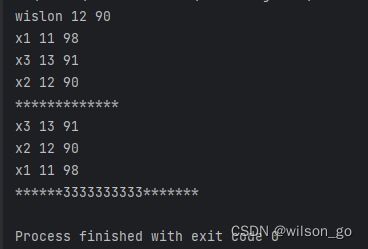- 【C++】内联函数
Easy_Package
c++开发语言
内联函数的概念以inline修饰的函数叫做内联函数,内联函数类似于宏,都是在调用的地方展开,没有函数调用建立栈帧的开销,提升程序运行的效率不同的是宏是在预处理阶段展开的,而内联函数是在编译阶段展开的而且宏使用起来过于繁琐,不够便捷,因此产生了内联函数inline是一种空间换时间的做法,若大量使用内敛,整个代码将会变得臃肿,但却少了调用开销,能够提高程序运行效率。内联对于编译器来说只是一种建议,具体
- C++学习:六个月从基础到就业——C++基础语法回顾:数据类型、变量与常量
superior tigre
C++学习:六个月从基础到就业c++学习
C++学习:六个月从基础到就业——C++基础语法回顾:数据类型、变量与常量本文是"C++学习:六个月从基础到就业"系列的第一篇技术文章,主要回顾C++的基本数据类型、变量定义和常量使用,为后续深入学习打下基础。查看完整系列目录了解更多内容。引言编程的本质是对数据的处理,而数据类型、变量与常量是任何编程语言的基础构建块。在C++中,对这些基础概念的深入理解不仅能让我们编写出正确的代码,还能帮助我们编
- 春招,作为普通IT实习生的我有哪些想法和准备?
十八朵郁金香
学习
想法&随记对即将毕业的大学生来说,秋招和春招是求职的好机会,也是一次尝试向社会进行"自我推销"的机会,体现自己的综合能力,是“意满签Offer”?还是“露出马脚,社死场面”?“准备-天时地利人和-行动”后,我们会有答案。话题回到自己,春招,我有哪些想法?去年,在学校举办校园秋招招聘之前,我已经通过线上投递+线下面试找到实习,在一家人数规模100~200的公司当前端实习生,到现在已有四个多月,没有经
- [前端面试场景题]虚拟列表
GISer_Jinger
前端面试
嗯,用户问的是“前端虚拟列表详解”,我需要详细回答这个问题。首先,我得先理解虚拟列表的概念和用途。根据搜索结果,虚拟列表主要用于优化长列表的渲染性能,特别是在处理大量数据时。用户可能想知道它的核心原理、实现方法以及实际应用场景。看网页1提到虚拟列表的定义和关键点,只渲染视口内的数据项,减少DOM节点。网页2和网页4都给出了具体的Vue和原生JS实现案例,比如动态计算起始和结束索引,使用transf
- 微信小程序的旅游服务助手 景点 酒店 旅游规划的设计与实现
QQ1304979694
微信小程序旅游小程序
文章目录具体实现截图本项目支持的技术语言研究思路、方法和步骤本系统开发思路主要软件与实现手段系统可行性分析源码获取详细视频演示:文章底部获取博主联系方式!!!!java类核心代码部分展示微信小程序技术现状源码获取/详细视频演示具体实现截图本项目支持的技术语言前端开发框架:vue.js+uniapp数据库mysql版本不限微信开发者工具/hbuiderx数据库工具:Navicat/SQLyog等都可
- 侯捷 C++ 课程学习笔记:深入掌握 C++ 高阶特性 —— 实践与心得分享
清水白石008
C++学习笔记课程教程c++学习笔记
侯捷C++课程学习笔记:深入掌握C++高阶特性——实践与心得分享自从开始接触侯捷C++系列精品课程以来,我对C++语言有了全新的认识与深入理解。这套课程不仅系统地梳理了C++的基础知识,更从实际案例中展示了许多高阶特性和工程实战技巧。作为一名长期从事C++开发的专业人士,我深深感受到侯捷老师讲解中那种由浅入深、逻辑严密的魅力,也正是这种教学风格让我在短时间内掌握了不少难以琢磨的知识点。今天,我将结
- Qt C++ 多线程串口通讯同步机制示例
ice_junjun
qtc++开发语言
当在QtC++中使用多线程进行串口通讯时,由于串口的阻塞读取特性,必要的线程同步和数据保护也是非常重要的。以下给出一个实现多个线程共享一个串口实例的示例程序,并使用QMutex作为线程同步机制来确保资源的安全访问:创建一个名为SerialPortManager的单例类,该类封装了串口的打开、关闭、读写等操作并提供给其他线程调用:classSerialPortManager:publicQObjec
- C++和标准库速成(十一)——简单雇员系统
梦醒沉醉
C++20c++
目录1.雇员记录系统2.Employee类2.1Employee模块接口文件2.1.1实现细节2.1.2完整代码2.2Employ模块实现文件2.2.1实现细节2.2.2完整代码2.3Employee测试文件3.Database类3.1Database模块接口文件3.1.1实现细节3.1.2完整代码3.2Database模块实现文件3.2.1实现细节3.2.2完整代码3.3Database测试文件
- 查询、插入、更新、删除数据的SQL语句(SQLite)
C++ 老炮儿的技术栈
sqlc++算法笔记学习
以下以SQLite数据库为例,展示在C++中使用SQLite库来执行查询、插入、更新和删除数据的操作示例代码。首先确保你已经安装了SQLite库,并且在C++项目中包含了相关的头文件。#include#include#include//回调函数,用于查询结果处理staticintcallback(void*NotUsed,intargc,char**argv,char**azColName){fo
- C++:类(通识版)
愚戏师
C++c++开发语言数据结构算法
类的基本思想是数据抽象(dataabstraction)和封装(encapsulation)。数据抽象是一种依赖于接口(interface)和实现(implementation)分离的编程(以及设计)技术。类的接口包括用户所能执行的操作;类的实现则包括类的数据成员、负责接口实现的函数体以及定义类所需的各种私有函数。封装实现了类的接口和实现的分离。封装后的类隐藏了它的实现细节,也就是说,类的用户只能
- C++ XML文件和解析
RangoLei_Lzs
C++前端服务器xmlc++
XML(可扩展标记语言)是一种用于存储和传输数据的标记语言。它具有自描述性和平台无关性的特点。XML文档的格式主要由一组嵌套的元素和属性构成,结构清晰,易于理解和解析。XML文档的基本格式一个XML文档通常包括以下部分:XML声明:标识文档和版本信息。根元素:整个XML文档只能有一个根元素,所有其他元素必须嵌套在根元素内。元素:具有开始标签和结束标签,可以嵌套其他元素。属性:为元素提供额外的信息。
- 第十五章:模板参数推导_《C++ Templates》notes
郭涤生
c/c++c++windows开发语言
模板参数推导第十五章核心知识点概览多选题设计题测试用例总结第十五章核心知识点概览模板参数推导基础引用折叠与完美转发SFINAE原则C++17类模板参数推导auto和decltype(auto)的推导规则模板参数推导基础知识点:函数模板参数通过调用时的实参类型推导数组/函数类型退化为指针引用类型不触发退化默认参数不参与推导代码示例:#include#includetemplatevoiddeduce
- 【XML协议】轻松掌握使用C++ XML解析库——pugixml
XYY_CN
C++入坑xmlc++
文章介绍了xml协议的组成以及C++xml解析库pugixml的常用操作。源于开发中每次遇到xml操作时,都要回过头查看pugixml库常用操作时什么样的,能不能有个更深刻和清晰的认识呢?其实搞清楚xml结构和pugixml组织结构的对照关系,以及pugixml中节点、属性的增删改查逻辑,可以帮助我们快速回忆起这些东西。遂,本文留作查询使用。XML协议XML(ExtensibleMarkupLan
- 前端 | debounce 防抖 vs 节流(throttle)
要加油哦~
vue项目vue学习笔记前端
重点知识点:-防抖,最后一次操作后等待执行,用于输入框、缩放等;-节流,每隔一定时间间隔执行,用于页面滚动、鼠标移动、频繁点击。debouncevsthrottle(节流)功能debounce(防抖)throttle(节流)触发时机最后一次操作结束后等待执行每隔一定时间间隔执行一次适用场景输入框、缩放等,操作停止后才执行页面滚动、鼠标移动、频繁点击等目录debouncevsthrottle(节流)
- 学习记录之游标翻页实现
sjsjsbbsbsn
Java学习之路项目实战技巧javamysqlredis
游标翻页本方案参考mallchat实现一.深翻页问题普通翻页前端一般会有个分页条。能够指定一页的条数,以及任意选择查看第几页,假设我们想查询第11页的内容传递过来的参数为:pageNo=11,pageSize=10对应的sql查询为:select*fromtablelimit100,10其中100代表需要跳过的条数,10代表跳过指定条数后,往后需要再取的条数。假设翻页到1w条,那我们要先扫描到这1
- 自制C++小游戏走迷宫
ccw_china
c++开发语言
直接上代码,有不足请指正,最新编辑于2025.3.22#include#include#include#includeusingnamespacestd;chara[100][100]={"####################","#O#####","###############","#################","#############","##################
- Python, C ++开发工厂管理APP
Geeker-2025
pythonc++
开发一款通用的**工厂管理App**,结合Python和C++的优势,可以实现高效的后端数据处理、实时的生产监控以及用户友好的前端界面。以下是一个详细的开发方案,涵盖技术选型、功能模块、开发步骤等内容。##技术选型###后端(Python)-**编程语言**:Python-**Web框架**:Django或Flask-**数据库**:PostgreSQL或MySQL-**实时通信**:WebSoc
- CEF 控制台添加一函数,枚举 注册的供前端使用的CPP交互函数有哪些
清水迎朝阳
CEF应用CEF交互注入函数注册CPP
一、前序知识1、设置单进程模式,方便调试voidClientApp::OnBeforeCommandLineProcessing(constCefString&process_type,CefRefPtrcommand_line){if(process_type.empty()){//cef在debug模式下有问题#ifdef_DEBUGcommand_line->AppendSwitchWith
- C语言程序配置搭建提纲
oicola
c语言开发语言编辑器c++
C、C++语言程序配置搭建提纲一、环境准备安装编译器选择合适的C语言编译器,如MinGW(包含GCC)或MSVC。从官方渠道下载并安装,确保安装过程中选择正确的组件(如MinGW的GCC或MSVC的“桌面开发withC++”工作负载)。安装代码编辑器推荐使用VisualStudioCode(VSCode),从官网下载并安装。配置环境变量将编译器的路径添加到系统的环境变量PATH中。对于MinGW,
- 2023华为OD机试真题-最佳对手(JAVA、Python、C++)
huaweiod123
华为OD机试真题2023javac++算法华为python
题目描述:游戏里面,队伍通过匹配实力相近的对手进行对战。但是如果匹配的队伍实例相差太大,对于双方游戏体验都不会太好。给定n个队伍的实力值,对其进行两两实力匹配,两支队伍实例差距在允许的最大差距d内,则可以匹配。要求在匹配队伍最多的情况下,匹配出的各组实力差距的总和最小。输入描述:第一行,n,d。队伍个数n。允许的最大实力差距d。(2<=n<=50,0<=d<=100)。第二行,n个队伍的实力值,空
- 华为OD机试E卷 - 最佳对手 / 实力差距最小总和(Java & Python& JS & C++ & C )
算法大师
javapythonjavascriptc++
题目描述游戏里面,队伍通过匹配实力相近的对手进行对战。但是如果匹配的队伍实力相差太大,对于双方游戏体验都不会太好。给定n个队伍的实力值,对其进行两两实力匹配,两支队伍实例差距在允许的最大差距d内,则可以匹配。要求在匹配队伍最多的情况下匹配出的各组实力差距的总和最小。输入描述第一行,n,d。队伍个数n。允许的最大实力差距d。2<=n<=500<=d<=100第二行,n个队伍的实力值空格分割。0<=各
- c++算法赛万能模板个人笔记适用蓝桥杯,天梯赛,acm等赛事
a东方青
个人笔记c++算法笔记
算法笔记-更新与2025-3-22点赞收藏+关注持续更新算法基础二分整数二分//在一个单调区间里面去找答案boolcheck(intx){/*...*/}//检查x是否满足某种性质//区间[l,r]被划分成[l,mid]和[mid+1,r]时使用:intbsearch_1(intl,intr){while(l>1;if(check(mid))r=mid;//check()判断mid是否满足性质el
- 力扣刷题-热题100题-第20题(c++、python)
weixin_44505472
c++pythonleetcode
48.旋转图像-力扣(LeetCode)https://leetcode.cn/problems/rotate-image/?envType=study-plan-v2&envId=top-100-liked使用辅助矩阵直接创建一个新矩阵来装旋转好的矩阵,不过需要注意的是要将新矩阵的值赋值回原矩阵,在c++中是可以直接=,但python中要注意matrix[:]=matrix1才是赋值,直接=是改
- 使用Annoy进行高效的近似最近邻搜索
eahba
前端javascriptangular.jspython
在处理大型数据集时,我们经常面临需要快速、准确地查找与给定查询点相近的数据点的问题。Annoy(ApproximateNearestNeighborsOhYeah)就是为解决此类问题而生的一个强大工具。Annoy是一个用C++编写并具有Python绑定的库,专用于在空间中搜索与给定查询点相近的点。它能够创建大型的只读文件数据结构,并映射到内存中,以便于多个进程共享相同的数据。技术背景介绍Annoy
- 深入 C++11:移动语义、Lambda表达式与新特性全面解析
酷酷的崽798
C/C++c++
文章目录新的类功能成员变量声明时给缺省值defult和deletefinal与overrideSTL当中的一些变化lambdalambda表达式语法捕捉列表lambda的应⽤lambda的原理新的类功能默认的移动构造和移动赋值原来C++类中,有6个默认成员函数:构造函数/析构函数/拷⻉构造函数/拷⻉赋值重载/取地址重载/const取地址重载,最后重要的是前4个,后两个⽤处不⼤,默认成员函数就是我们
- 【C++模板】——C++模板的力量:构建灵活与安全的代码
酷酷的崽798
C/C++c++开发语言
文章目录1.类型模板参数2.非类型模板参数3.模板的特化1.概念2.函数模板特化3.类模板特化4.补充5.模板编译分离解决方案优点与缺点在C++中,模板参数可以分为两大类:类型模板参数(typetemplateparameters)和非类型模板参数(non-typetemplateparameters)。这两种模板参数允许我们定义更为灵活和通用的模板代码。下面对它们分别进行介绍。1.类型模板参数类
- 「Kubernetes Objects」- Service(学习笔记) @20210227
k4nzdroid
Service,服务,用于暴露Pod以供访问。官方文档及手册KubernetesAPIv1.18/Servicev1coreService?Pod会被创建,并且还会消失,这由ReplicaSets控制。每个Pod都有自己的IP地址,但是这些IP地址不能视为可靠的。那么,如果前端的一部分Pod依赖于后端的Pod,那前端的这些Pod如何找出并追踪后端的Pod?ServiceService是一个抽象,定
- JavaScript基础-API 和 Web API
難釋懷
前端javascript开发语言
在现代Web开发中,API(应用程序接口)是连接不同软件组件或系统之间的桥梁。对于前端开发者来说,JavaScript与WebAPI的结合使用尤为重要,它使得我们可以访问浏览器提供的各种功能和服务,从而构建出交互性更强、用户体验更好的网页应用。本文将介绍API的基本概念,重点探讨WebAPI及其在JavaScript中的应用。一、什么是API?API全称为“ApplicationProgrammi
- C++中map和set的详解
程序员Hagei
c++算法开发语言
C++中map和set的介绍与使用在C++编程中,map和set是标准模板库(STL)中两种非常重要的关联容器。它们基于平衡二叉搜索树(通常是红黑树)的数据结构来实现,提供了高效的数据存储和检索功能。本文将详细介绍map和set的特点、用法以及一些常见的操作示例。一、map的介绍与使用1.map的基本概念map是一个键值对容器,其中每个键都是唯一的,且按照升序排序。map的内部结构是红黑树,这使得
- CAD开发经验总结
我的sun&shine
CAD二次开发c++
作为一个拥有三年CAD二次开发经验的C++程序员,今天将积累的经验总结整理了一下,希望对二次开发人员有帮助,一个word文档,放到下载里面了,挣点积分,文档目录截个图
- knob UI插件使用
换个号韩国红果果
JavaScriptjsonpknob
图形是用canvas绘制的
js代码
var paras = {
max:800,
min:100,
skin:'tron',//button type
thickness:.3,//button width
width:'200',//define canvas width.,canvas height
displayInput:'tr
- Android+Jquery Mobile学习系列(5)-SQLite数据库
白糖_
JQuery Mobile
目录导航
SQLite是轻量级的、嵌入式的、关系型数据库,目前已经在iPhone、Android等手机系统中使用,SQLite可移植性好,很容易使用,很小,高效而且可靠。
因为Android已经集成了SQLite,所以开发人员无需引入任何JAR包,而且Android也针对SQLite封装了专属的API,调用起来非常快捷方便。
我也是第一次接触S
- impala-2.1.2-CDH5.3.2
dayutianfei
impala
最近在整理impala编译的东西,简单记录几个要点:
根据官网的信息(https://github.com/cloudera/Impala/wiki/How-to-build-Impala):
1. 首次编译impala,推荐使用命令:
${IMPALA_HOME}/buildall.sh -skiptests -build_shared_libs -format
2.仅编译BE
${I
- 求二进制数中1的个数
周凡杨
java算法二进制
解法一:
对于一个正整数如果是偶数,该数的二进制数的最后一位是 0 ,反之若是奇数,则该数的二进制数的最后一位是 1 。因此,可以考虑利用位移、判断奇偶来实现。
public int bitCount(int x){
int count = 0;
while(x!=0){
if(x%2!=0){ /
- spring中hibernate及事务配置
g21121
Hibernate
hibernate的sessionFactory配置:
<!-- hibernate sessionFactory配置 -->
<bean id="sessionFactory"
class="org.springframework.orm.hibernate3.LocalSessionFactoryBean">
<
- log4j.properties 使用
510888780
log4j
log4j.properties 使用
一.参数意义说明
输出级别的种类
ERROR、WARN、INFO、DEBUG
ERROR 为严重错误 主要是程序的错误
WARN 为一般警告,比如session丢失
INFO 为一般要显示的信息,比如登录登出
DEBUG 为程序的调试信息
配置日志信息输出目的地
log4j.appender.appenderName = fully.qua
- Spring mvc-jfreeChart柱图(2)
布衣凌宇
jfreechart
上一篇中生成的图是静态的,这篇将按条件进行搜索,并统计成图表,左面为统计图,右面显示搜索出的结果。
第一步:导包
第二步;配置web.xml(上一篇有代码)
建BarRenderer类用于柱子颜色
import java.awt.Color;
import java.awt.Paint;
import org.jfree.chart.renderer.category.BarR
- 我的spring学习笔记14-容器扩展点之PropertyPlaceholderConfigurer
aijuans
Spring3
PropertyPlaceholderConfigurer是个bean工厂后置处理器的实现,也就是BeanFactoryPostProcessor接口的一个实现。关于BeanFactoryPostProcessor和BeanPostProcessor类似。我会在其他地方介绍。
PropertyPlaceholderConfigurer可以将上下文(配置文件)中的属性值放在另一个单独的标准java
- maven 之 cobertura 简单使用
antlove
maventestunitcoberturareport
1. 创建一个maven项目
2. 创建com.CoberturaStart.java
package com;
public class CoberturaStart {
public void helloEveryone(){
System.out.println("=================================================
- 程序的执行顺序
百合不是茶
JAVA执行顺序
刚在看java核心技术时发现对java的执行顺序不是很明白了,百度一下也没有找到适合自己的资料,所以就简单的回顾一下吧
代码如下;
经典的程序执行面试题
//关于程序执行的顺序
//例如:
//定义一个基类
public class A(){
public A(
- 设置session失效的几种方法
bijian1013
web.xmlsession失效监听器
在系统登录后,都会设置一个当前session失效的时间,以确保在用户长时间不与服务器交互,自动退出登录,销毁session。具体设置很简单,方法有三种:(1)在主页面或者公共页面中加入:session.setMaxInactiveInterval(900);参数900单位是秒,即在没有活动15分钟后,session将失效。这里要注意这个session设置的时间是根据服务器来计算的,而不是客户端。所
- java jvm常用命令工具
bijian1013
javajvm
一.概述
程序运行中经常会遇到各种问题,定位问题时通常需要综合各种信息,如系统日志、堆dump文件、线程dump文件、GC日志等。通过虚拟机监控和诊断工具可以帮忙我们快速获取、分析需要的数据,进而提高问题解决速度。 本文将介绍虚拟机常用监控和问题诊断命令工具的使用方法,主要包含以下工具:
&nbs
- 【Spring框架一】Spring常用注解之Autowired和Resource注解
bit1129
Spring常用注解
Spring自从2.0引入注解的方式取代XML配置的方式来做IOC之后,对Spring一些常用注解的含义行为一直处于比较模糊的状态,写几篇总结下Spring常用的注解。本篇包含的注解有如下几个:
Autowired
Resource
Component
Service
Controller
Transactional
根据它们的功能、目的,可以分为三组,Autow
- mysql 操作遇到safe update mode问题
bitray
update
我并不知道出现这个问题的实际原理,只是通过其他朋友的博客,文章得知的一个解决方案,目前先记录一个解决方法,未来要是真了解以后,还会继续补全.
在mysql5中有一个safe update mode,这个模式让sql操作更加安全,据说要求有where条件,防止全表更新操作.如果必须要进行全表操作,我们可以执行
SET
- nginx_perl试用
ronin47
nginx_perl试用
因为空闲时间比较多,所以在CPAN上乱翻,看到了nginx_perl这个项目(原名Nginx::Engine),现在托管在github.com上。地址见:https://github.com/zzzcpan/nginx-perl
这个模块的目的,是在nginx内置官方perl模块的基础上,实现一系列异步非阻塞的api。用connector/writer/reader完成类似proxy的功能(这里
- java-63-在字符串中删除特定的字符
bylijinnan
java
public class DeleteSpecificChars {
/**
* Q 63 在字符串中删除特定的字符
* 输入两个字符串,从第一字符串中删除第二个字符串中所有的字符。
* 例如,输入”They are students.”和”aeiou”,则删除之后的第一个字符串变成”Thy r stdnts.”
*/
public static voi
- EffectiveJava--创建和销毁对象
ccii
创建和销毁对象
本章内容:
1. 考虑用静态工厂方法代替构造器
2. 遇到多个构造器参数时要考虑用构建器(Builder模式)
3. 用私有构造器或者枚举类型强化Singleton属性
4. 通过私有构造器强化不可实例化的能力
5. 避免创建不必要的对象
6. 消除过期的对象引用
7. 避免使用终结方法
1. 考虑用静态工厂方法代替构造器
类可以通过
- [宇宙时代]四边形理论与光速飞行
comsci
从四边形理论来推论 为什么光子飞船必须获得星光信号才能够进行光速飞行?
一组星体组成星座 向空间辐射一组由复杂星光信号组成的辐射频带,按照四边形-频率假说 一组频率就代表一个时空的入口
那么这种由星光信号组成的辐射频带就代表由这些星体所控制的时空通道,该时空通道在三维空间的投影是一
- ubuntu server下python脚本迁移数据
cywhoyi
pythonKettlepymysqlcx_Oracleubuntu server
因为是在Ubuntu下,所以安装python、pip、pymysql等都极其方便,sudo apt-get install pymysql,
但是在安装cx_Oracle(连接oracle的模块)出现许多问题,查阅相关资料,发现这边文章能够帮我解决,希望大家少走点弯路。http://www.tbdazhe.com/archives/602
1.安装python
2.安装pip、pymysql
- Ajax正确但是请求不到值解决方案
dashuaifu
Ajaxasync
Ajax正确但是请求不到值解决方案
解决方案:1 . async: false , 2. 设置延时执行js里的ajax或者延时后台java方法!!!!!!!
例如:
$.ajax({ &
- windows安装配置php+memcached
dcj3sjt126com
PHPInstallmemcache
Windows下Memcached的安装配置方法
1、将第一个包解压放某个盘下面,比如在c:\memcached。
2、在终端(也即cmd命令界面)下输入 'c:\memcached\memcached.exe -d install' 安装。
3、再输入: 'c:\memcached\memcached.exe -d start' 启动。(需要注意的: 以后memcached将作为windo
- iOS开发学习路径的一些建议
dcj3sjt126com
ios
iOS论坛里有朋友要求回答帖子,帖子的标题是: 想学IOS开发高阶一点的东西,从何开始,然后我吧啦吧啦回答写了很多。既然敲了那么多字,我就把我写的回复也贴到博客里来分享,希望能对大家有帮助。欢迎大家也到帖子里讨论和分享,地址:http://bbs.csdn.net/topics/390920759
下面是我回复的内容:
结合自己情况聊下iOS学习建议,
- Javascript闭包概念
fanfanlovey
JavaScript闭包
1.参考资料
http://www.jb51.net/article/24101.htm
http://blog.csdn.net/yn49782026/article/details/8549462
2.内容概述
要理解闭包,首先需要理解变量作用域问题
内部函数可以饮用外面全局变量
var n=999;
functio
- yum安装mysql5.6
haisheng
mysql
1、安装http://dev.mysql.com/get/mysql-community-release-el7-5.noarch.rpm
2、yum install mysql
3、yum install mysql-server
4、vi /etc/my.cnf 添加character_set_server=utf8
- po/bo/vo/dao/pojo的详介
IT_zhlp80
javaBOVODAOPOJOpo
JAVA几种对象的解释
PO:persistant object持久对象,可以看成是与数据库中的表相映射的java对象。最简单的PO就是对应数据库中某个表中的一条记录,多个记录可以用PO的集合。PO中应该不包含任何对数据库的操作.
VO:value object值对象。通常用于业务层之间的数据传递,和PO一样也是仅仅包含数据而已。但应是抽象出的业务对象,可
- java设计模式
kerryg
java设计模式
设计模式的分类:
一、 设计模式总体分为三大类:
1、创建型模式(5种):工厂方法模式,抽象工厂模式,单例模式,建造者模式,原型模式。
2、结构型模式(7种):适配器模式,装饰器模式,代理模式,外观模式,桥接模式,组合模式,享元模式。
3、行为型模式(11种):策略模式,模版方法模式,观察者模式,迭代子模式,责任链模式,命令模式,备忘录模式,状态模式,访问者
- [1]CXF3.1整合Spring开发webservice——helloworld篇
木头.java
springwebserviceCXF
Spring 版本3.2.10
CXF 版本3.1.1
项目采用MAVEN组织依赖jar
我这里是有parent的pom,为了简洁明了,我直接把所有的依赖都列一起了,所以都没version,反正上面已经写了版本
<project xmlns="http://maven.apache.org/POM/4.0.0" xmlns:xsi="ht
- Google 工程师亲授:菜鸟开发者一定要投资的十大目标
qindongliang1922
工作感悟人生
身为软件开发者,有什么是一定得投资的? Google 软件工程师 Emanuel Saringan 整理了十项他认为必要的投资,第一项就是身体健康,英文与数学也都是必备能力吗?来看看他怎么说。(以下文字以作者第一人称撰写)) 你的健康 无疑地,软件开发者是世界上最久坐不动的职业之一。 每天连坐八到十六小时,休息时间只有一点点,绝对会让你的鲔鱼肚肆无忌惮的生长。肥胖容易扩大罹患其他疾病的风险,
- linux打开最大文件数量1,048,576
tianzhihehe
clinux
File descriptors are represented by the C int type. Not using a special type is often considered odd, but is, historically, the Unix way. Each Linux process has a maximum number of files th
- java语言中PO、VO、DAO、BO、POJO几种对象的解释
衞酆夼
javaVOBOPOJOpo
PO:persistant object持久对象
最形象的理解就是一个PO就是数据库中的一条记录。好处是可以把一条记录作为一个对象处理,可以方便的转为其它对象。可以看成是与数据库中的表相映射的java对象。最简单的PO就是对应数据库中某个表中的一条记录,多个记录可以用PO的集合。PO中应该不包含任何对数据库的操作。
BO:business object业务对象
封装业务逻辑的java对象
